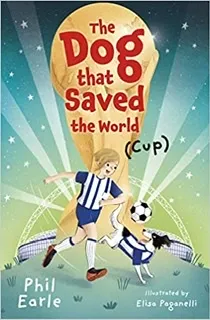The FIFA World Cup, football’s most prestigious tournament, brings nations together in a celebration of sport, passion, and rivalry. But imagine a scenario where the ultimate prize, the coveted Jules Rimet trophy, vanished just months before the competition. This was the terrifying reality for England in 1966, a nation already buzzing with anticipation to host and potentially win its first World Cup. Amidst the frantic search and national despair, an unlikely hero emerged from the suburban streets of London – a small, black and white mongrel named Pickles, forever cementing his place in football lore as The Dog That Saved The World Cup.
The Stolen Trophy: A Nation’s Despair
The year 1966 was momentous for English football. As the host nation, the pressure to deliver a memorable tournament and a triumphant campaign was immense. The symbol of this global spectacle, the Jules Rimet trophy, was a priceless artifact, representing decades of football history. To ensure its security during a public exhibition at Westminster Central Hall, the trophy was placed inside a locked glass cabinet, seemingly impervious to theft.
However, on March 20, 1966, just four months before the tournament was due to begin, the unthinkable happened. While the congregation was at Sunday service, the trophy vanished. The brazen theft sent shockwaves across the globe, plunging England into a state of panic and embarrassment. Scotland Yard launched one of the biggest manhunts in its history, mobilizing detectives and informants, while the Football Association received ransom demands. The police force, already under immense pressure, had exhausted all leads, and the prospect of hosting a World Cup without its centerpiece became a grim reality.
Pickles to the Rescue: A Walk in History
One ordinary Sunday afternoon, a man named David Corbett took his four-year-old dog, Pickles, for a routine walk near his home in Norwood, South London. As they ambled along Beulah Hill, Pickles, known for his curious nature, began sniffing intently at a parcel wrapped in newspaper and discarded beneath a hedge. What seemed like a mundane discovery quickly turned into one of the most astonishing moments in sporting history.
Corbett, initially thinking it might be a bomb or something dangerous, cautiously unwrapped the package. To his utter disbelief, inside lay the golden Jules Rimet trophy, unmistakably the stolen World Cup. The gleaming gold statue, which had eluded the best detectives for days, was found by a humble mongrel on his daily walk. Corbett immediately took the trophy to the police station, where officers were initially skeptical, even questioning his involvement in the theft. However, once authenticated, the truth was undeniable: Pickles had indeed found the missing World Cup.
 Illustration of a girl and her loyal dog, Pickles, with a football, symbolizing their deep bond and love for the sport, central to the story of the dog that saved the World Cup.
Illustration of a girl and her loyal dog, Pickles, with a football, symbolizing their deep bond and love for the sport, central to the story of the dog that saved the World Cup.
From Suspect to Superstar: Pickles’ Legacy
News of Pickles’ discovery instantly made headlines worldwide. The dog who saved the World Cup became an overnight sensation, a national hero celebrated across England and beyond. Pickles and David Corbett were showered with praise, rewards, and media attention. Pickles received a year’s supply of dog food, a medal from the National Canine Defence League, and even an offer to star in a film titled “The Spy with a Cold Nose.” He was invited to the official World Cup banquet after England’s historic victory, a testament to his crucial role in allowing the tournament to proceed triumphantly.
His actions not only averted a potential disaster but also lifted the national spirit, providing a heartwarming prelude to England’s eventual World Cup glory. Pickles’ story became a symbol of hope and serendipity, reminding everyone that heroes can come in the most unexpected forms, even on four paws. He proved that the intuitive senses and unwavering loyalty of a dog could, quite literally, save the day.
More Than a Game: The Enduring Impact of a Four-Legged Hero
The tale of Pickles, the dog that saved the World Cup, transcends mere football history. It’s a heartwarming narrative about the extraordinary bond between humans and their canine companions. Pickles’ instinctive discovery highlighted the incredible senses of dogs and their ability to impact human lives in profound ways, sometimes even on a global scale. This event underscored the inherent value of our pets, not just as companions, but as sentient beings with unique abilities that often go unnoticed until a moment of crisis.
His story serves as a timeless reminder of canine loyalty, intelligence, and the unexpected heroism that can spring from our furry friends. It inspires us to appreciate the unconditional love and silent contributions that dogs make to our daily lives, proving that sometimes, the greatest heroes are the ones we share our homes with. Pickles’ legacy endures, celebrated not just in football history, but in the hearts of dog lovers everywhere, a beacon for the extraordinary in the ordinary.
The story of Pickles will forever be a delightful chapter in the history of the World Cup, a testament to the magic of dogs and the unwavering spirit of sport.
References
- The Football Association. (n.d.). England’s World Cup Story: 1966. Retrieved from Thefa.com
- BBC Sport. (2016). World Cup 1966: The theft of the Jules Rimet trophy. Retrieved from BBC.co.uk
- The National Football Museum. (n.d.). Pickles the Dog. Retrieved from Nationalfootballmuseum.com
